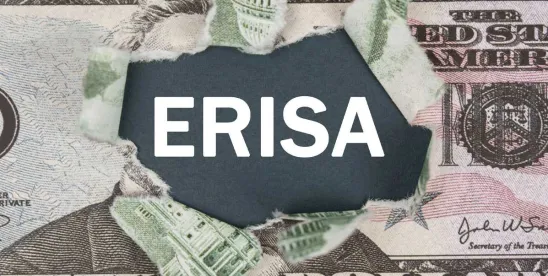The U.S. Supreme Court recently declined to hear Rose v. PSA Airlines, Inc., Case No. 23-734, which raised the question of whether a remedy known as “surcharge” falls under ERISA’s equitable remedies provision. Surcharge, in simple terms, resembles monetary damages. Historically, courts used it to address losses resulting from a trustee’s breach of duty or to prevent unjust enrichment.
Plaintiff Rose brought the action back in December 2019 on behalf of her deceased son’s estate. Rose’s complaint alleged that her son’s employer, PSA Airlines, wrongly refused to cover the cost of her son’s medically necessary heart transplant surgery until a month after his death in February 2019. Rose filed suit under ERISA to recover the monetary value of “benefits” that were denied under her deceased son’s plan.
A federal district court dismissed Rose’s case in September 2021 and she appealed. In evaluating Rose’s claim, both the district and appellate court analyzed whether the “catch-all” remedial provision under ERISA Section 502(a)(3) allowed for such a financial award. Both courts held that the money relief sought in the lawsuit was not a “benefit” that could be recovered under the terms of the employer’s health plan. In other words, ERISA would not authorize monetary compensation when such a remedy was unavailable under the terms of the health plan.
The Fourth Circuit also clarified that it declined to follow the Supreme Court’s holding in CIGNA Corp. v. Amara, 563 U.S. 421 (2011) as dicta. In Amara, the Supreme Court noted that certain plaintiffs might be permitted to pursue make-whole, loss-based monetary relief under ERISA Section 502(a)(3) because such relief was analogous to surcharge. Instead, the Fourth Circuit relied on a later Supreme Court case, Montanile v. Board of Trustees of the Nat’l Elevator Indus. Health Benefits Plan, 577 U.S. 136 (2016), to set aside its own precedent relying on Amara and held that surcharge was unavailable under 502(a)(3).
The Fourth Circuit’s decision in Rose diverges from seven other circuits (the Second, Fifth, Seventh, Eighth, Ninth, Tenth, and Eleventh), all of which have concluded in published decisions that surcharge is an equitable remedy available under 502(a)(3). With parties relying on the surcharge remedy following Amara, the Fourth Circuit’s decision may prompt a re-evaluation of surcharge’s viability under ERISA.





 />i
/>i

